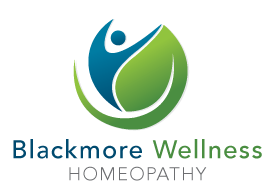Testing Services
For Food Reactions, Immunology, Nutritional, Environmental & Hormone
Sometimes we don’t know exactly what is going on inside our bodies and that is why it may be beneficial to have some testing done to determine where our sensitivities lie, so that we can make adjustments to our diet and/or lifestyle.
We often talk about “maintaining causes” in Homeopathy and what we mean by that are those things that are present in our life that continue to prevent us from thoroughly healing.
For example, if you are severely allergic to mould and you live in a damp basement apartment with mould growing, it is highly unlikely that you will be at your highest level of wellness.
Similarly, if you have gut issues and you are gluten intolerant but you continue to eat products containing gluten, then it can be said that gluten is a maintaining cause in the current state of your health.
Blackmore Wellness offers various tests through Rocky Mountain Analytical.
Read More About What Tests We offer:
You May Be Wondering.....
Why do you need to see me for testing?
As your Homeopath, I am uniquely qualified to help determine how the results of these tests impact your Homeopathic treatment. I can explain to you how certain changes can help to improve your level of wellness. I also have access to Rocky Mountain’s team of doctors who specialize in the analysis of test results should anything be unclear.
Why can’t you work directly with Rocky Mountain?
Rocky Mountain only deals with registered health care professionals that are qualified to offer these services. Generally, those are practitioners who have a background in nutrition, biology, anatomy and physiology, pathology, pathophysiology, and biochemistry.
Get Tested
The Process – How it Works:
- You contact me to discuss which testing you may be interested in and we discuss details and pricing.
- I order the kit from Rocky Mountain. (usually 3-5 business days)
- I notify you when the kit arrives.
- You pick up the kit from me and I give you instructions on what to do and where to send your sample(s).
- Rocky Mountain contacts me with your results and discusses them with me.
- I contact you to schedule an appointment to review your personal results with you. There is no charge for this appointment.
- Payment for the test is due when I am billed from Rocky Mountain. I will contact you.
Read More Information About Our Tests
Food Reactions and Immunology Testing
No one knows why the immune system produces antibodies to certain foods, but when it does, a noticeable food reaction may result.
Rocky Mountain Analytical tests for food-specific reactions to three different antibodies: IgG, IgE and IgA The immune system exists to defend the body against bacteria, viruses and any other potentially harmful organisms. One of the ways it does this is by producing cells called immunoglobulins, also called antibodies.
There are five major immunoglobulins: IgA, IgD, IgE, IgG, and IgM. Only IgE reactions are considered true food allergies. IgE reactions typically occur within minutes of exposure to, or ingestion of, food antigen. Commonly observed IgE reactions include: hives, itchy watery eyes and breathing difficulties. Testing for IgE food allergies requires a blood draw. Diagnosis of a food allergy can only be made by an allergist, and may involve skin prick tests or a double-blind, placebo-controlled oral food challenge.
Food Sensitivity is a term that usually refers to delayed immune reactions to foods. For example, IgG and IgA reactions to foods are commonly referred to as food sensitivities. The term food sensitivity is sometimes used to describe non-immune reactions to food.
There is no agreed upon definition of what a food sensitivity is. IgG and IgA food reactions can be tested from a blood sample collected via finger puncture or blood draw. Usually refers to non-immune reactions like enzyme deficiencies. For example, people who lack the enzyme lactase have trouble digesting milk. This is called lactose intolerance.
Nutritional and Environmental Testing
The toxins and nutrients we are exposed to influence how well our cells function. Environmental toxins can change healthy cells into unhealthy cells, while having the right nutritional elements can mitigate the damage done by toxins.
Hormone Testing
Hormone testing is helpful for finding out if hormone levels are optimal for health. Rocky Mountain Analytical tests hormones in saliva and urine.
Hormones have been measured in saliva for over thirty years, and research continues to accumulate attesting to its reliability and clinical relevance.
Despite a wealth of supporting evidence, many are still critical of saliva hormone testing. These criticisms have arisen largely from misuse of the test results -specifically, reading too much into what the numbers mean.
Saliva hormone testing is very useful for finding underlying hormone excesses and deficiencies, but needs to be interpreted with care when hormones are being supplemented.
Urine steroid hormone analysis, like saliva hormone analysis, is noninvasive and convenient to do at home.
Producing a saliva sample is generally easy for most people, but conditions like dry mouth and some autoimmune diseases can make saliva collection difficult.
Urine collection is therefore easier for some, although collecting urine for a full 24 hours may be inconvenient. Urine steroid hormone analysis differs from saliva hormone testing in that it measures conjugated hormones.
Conjugated hormones are hormones that the body modifies by adding a chemical – usually glucuronide or sulphate molecules – to facilitate their elimination (i.e. in urine or stool).
The amount of hormone in urine essentially tells us what the body is getting rid of, not necessarily what is available for use.
